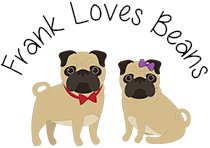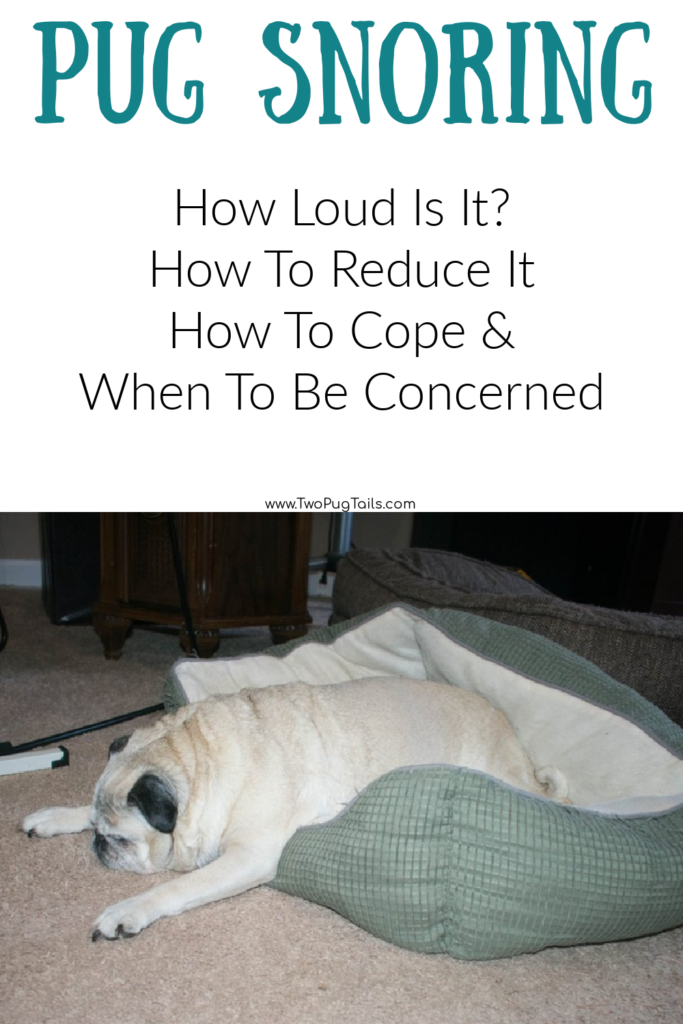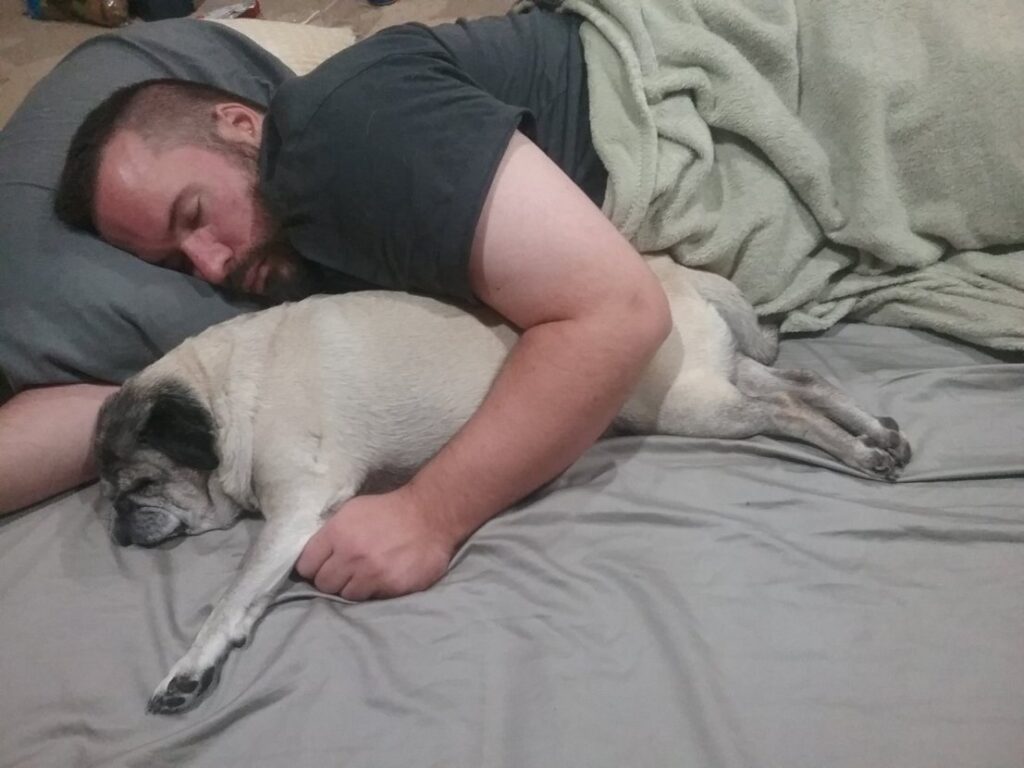
Pug Snoring
Why Pugs Snore
Snoring is usually the result of trying to breathe while the airway is obstructed. In pugs, their airway is small because they have flat faces and short mouths. Many pugs also have elongated palates. Basically, their facial structure increases her odds of snoring compared to other types of dogs.
Is it normal for pugs to snore?
Yes, most pugs snore a least occasionally.
Interestingly, my pug Beans had a harder time breathing than Frank did. Yet Frank snored more than Beans. Neither of my pugs snored all he time. I’d say they snored less than half he time that they were sleeping.

Causes of snoring in pugs
As I mentioned above, pugs are predisposed to snoring due ot being brachiocephalic dogs. There are other factors too though. SOme of those iclude:
The position that your dog is laying in can impact their snoring. Some positions keep the airway more open than others. Positions like laying on the back can increase the odds of the airway being obstructed and snoring resulting.
Allergies. If your dog has allergens, you may notice them snoring more when their allergies are flaring. Like people, if we have allergies it can inflame parts of our face which puts pressure on our airways and makes it harder to breathe quietly.
Obesity can be a factor. The heavier a pug is, the more pressure there will be in their neck and chest. If your pug is overweigh, trying to get them to a healthier weight may reduce their snoring.
Illness. If your dog is sick, they may snore more than usual or harder than usual until they recover.
Age. As dogs age, their muscles naturally weaken. When this happens to the muscles surrounding the airway, it may result in more pressure landing on their airway.
How To Stop A Pug From Snoring Or Improve It
Adjust their sleeping position if they are laying in a way that obstructs their breathing. You may try placing a small pillow under them to keep pressure off their neck. Gettig them a dog bed with a ledge they can rest their chin on may result in them naturally falling to sleep in that position.
Treat their allergies. You may be able to determine heir allergies through observing what they are exposed to when heir symptoms flare. If not, you may have to see our vet for allergy testing. Once you learn what they are allergic to, reducing their exposure to those allergens may reduce their snoring.
Watch their weight. Overweight or obese dogs are more likely to snore, so if your dog has extra weigh they may snore less if they lose weight.
Keep a clean environment. Keep their bedding clean, vacuum regularly and watch the air quality in your home to reduce allergens.
Stenotic nares surgery can open heir nasal passages and improve breathing in general, including a night.
Keep the room comfortable. Many pugs will breathe worse if it’s ho or humid. Using an air conditioner when it’s hot or humid can help them breathe easier.
Video of pug snoring
This is Frank snoring particularly loud (for him) one day.
When to be concerned about pug snoring
- If their gums get really pale while they are asleep, his could be a sign that they aren’t getting enough oxygen.
- If your dog seems to struggle to breathe while asleep.
- If the snoring is excessively loud.
- If he snoring has a really sudden onset.

How to cope with pug snoring
If you or others in he house find the pug snoring disrupting, you may try to reduce the snoring using the tips listed higher up in his article. If the snoring can’ be improved or fixed, here are some tips for coping.
Use a white noise machine. White noise machines can help somewhat drown out other noise, making noises like snoring less disruptive. You may try different types of white noise (Fan/wind sounds, storm sounds, rain sounds, etc) to see what works best for you.
Change where the dog sleeps. This is tough with pugs because pugs are clingy and want to be with their people. However, if you just can’t sleep while your pug is snoring, they may have to start sleeping with another family member or in a kennel or dog bed in another room.

Leave a Comment